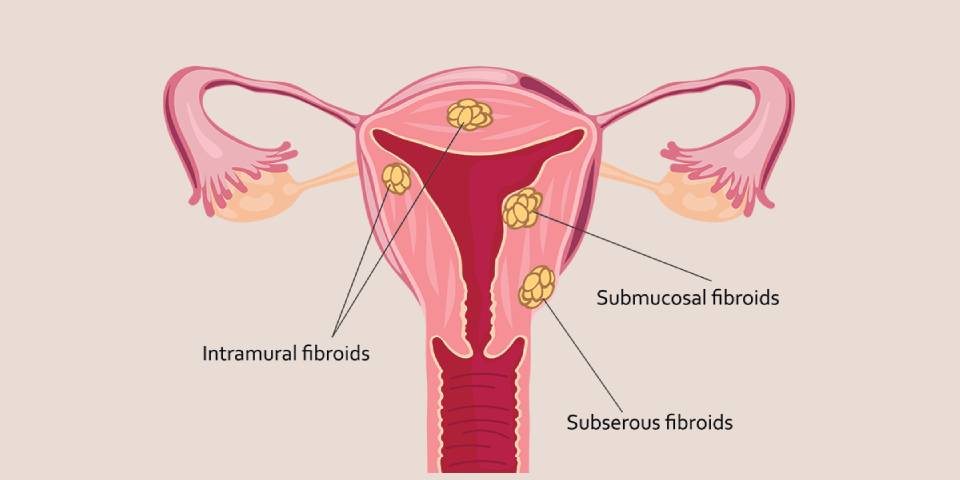Are you suffering from Uterine fibroids? Looking for expert treatment, then you’re at the right place. Dr. Shraddha Galgali is a leading & qualified gynecologist in Punwale, PCMC, Pune who specialize in treating various gynecological condition & surgery. On this page, She guides us on how to identify fibroids and what is a necessary treatment for them.
Fibroids are non-cancerous growths that occur within the uterus of women. These growths are also known as leiomyomas, myomas, or fibromas. Fibroids are very common, with over 50% of women having them in their lifetime. In most cases, fibroids are small and do not cause any symptoms. However, in some cases, fibroids can cause heavy bleeding, pain, and other complications.
Types of Uterine Fibroids:
There are different types of fibroids, depending on where they are located within the uterus. The types of fibroids include:
- Intramural Fibroids: These fibroids grow within the muscular walls of the uterus and are the most common type of fibroid.
- Subserosal Fibroids: These fibroids grow on the outer surface of the uterus and can sometimes grow very large.
- Submucosal Fibroids: These fibroids grow just under the lining of the uterus and can cause heavy bleeding.
- Pedunculated Fibroids: These fibroids grow on a stalk-like structure and can either grow inside or outside the uterus.
Symptoms of Uterine Fibroids:
In most cases, fibroids do not cause any symptoms. However, in some cases, fibroids can cause heavy bleeding, pain, and other complications. The symptoms of fibroids include:
- Heavy bleeding during menstruation
- Painful periods
- Pain during sex
- Abdominal swelling
- Frequent urination
- Constipation
- Back pain
- Infertility
Causes of Fibroids:
The exact cause of fibroids is not known. However, some factors increase the risk of developing fibroids. These factors include:
- Age: Fibroids are more common in women who are between the ages of 30 and 40.
- Genetics: Women who have a family history of fibroids are more likely to develop fibroids.
- Hormones: Fibroids are more common in women who have high levels of estrogen and progesterone.
- Obesity: Women who are obese are more likely to develop fibroids.
- Ethnicity: Fibroids are more common in women of African-American descent.
Diagnosis of Fibroids:
Fibroids can be diagnosed through a physical examination or imaging tests. Imaging tests include:
- Ultrasound: This test uses sound waves to create images of the uterus.
- Magnetic Resonance Imaging (MRI): This test uses a magnetic field and radio waves to create images of the uterus.
- Hysteroscopy: This test uses a small camera to look inside the uterus.
Treatment of Fibroids:
Dr. Shraddha Galgali is known that every patient has a unique approach to treatment. She always says that treatment depends on how many fibroids you have, the size of fibroids, their location, your symptoms, your desire for pregnancy, and whether your uterus is to be preserved. Treatment is either medical or surgical. It includes pain medication, iron supplements, and various hormones. Surgery is usually the last option and includes a myomectomy, laparoscopic removal of fibroids, or a laparotomy
- Medications: Medications can be used to shrink fibroids and reduce the symptoms.
- Surgery: Surgery can be used to remove fibroids. The most common surgery is a hysterectomy, which involves the removal of the uterus.
- Uterine Fibroid Embolization (UFE): UFE is a non-surgical procedure that involves blocking the blood flow to the fibroids.
- Myomectomy: Myomectomy is a surgical procedure that involves the removal of the fibroids while leaving the uterus intact.
Prevention of Uterine Fibroids:
There is no sure way to prevent fibroids. However, some things may reduce the risk of developing fibroids. These things include:
- Maintaining a healthy weight
- Eating a healthy diet
- Exercising regularly
- Avoiding excess alcohol and caffeine
- Reducing stress
Request an Appointment:
Dr. Shraddha Galgali is one of the best gynecologists in Punawale. She has experience in handling complex cases in Obstetrics and Gynecology. She provides the highest quality services to the mother and child. For more information about our comprehensive treatment options call 9923956515 or Click on Book Appointment for online booking with your near hospital

